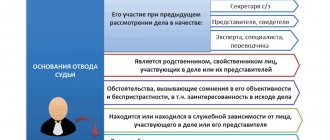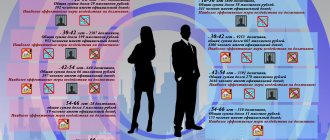The Family Code of the Russian Federation obliges parents to support their minor children, regardless of the situation within the family. Often, alimony issuance becomes a logical continuation of the divorce process. The procedure depends on the will of the spouses. In some cases, it is possible to agree on voluntary payments, in others, everything is resolved through the court with the involvement of bailiffs. Before collecting alimony, it is worth deciding on its types and the format of interaction between spouses after a divorce.
Methods for making alimony payments
In accordance with Russian laws, recipients of financial support are minor children. The parent with whom the child remains permanently residing by court decision or voluntary agreement can also act as a recipient of alimony. It is possible to agree on the maintenance of a spouse under the circumstances noted in Art. 90 RF IC. Most often, alimony is issued only for children who were born or adopted during marriage.
On a voluntary basis
Spouses can do without complicated proceedings and agree on alimony on their own. To prevent problems with payments in the future, an agreement is drawn up, which states the obligations of the parties to the child. The document is notarized and, if necessary, can serve as official confirmation in court.
The main rule for registering child support in this format is the voluntary consent of each parent to the conditions noted in the agreement. The option is also notable for the ability to independently choose the schedule and type of payments - as a percentage of the payer’s income or a fixed amount. All circumstances of the voluntary agreement are noted in Chapter 16 of the RF IC.
Sample settlement agreement for payment of alimony:
Other examples of settlement agreements for divorce:
Settlement agreement on the division of marital property
Child Residence Agreement Field of Divorce
Via court order
If it is not possible to agree on alimony without involving the court, then you can issue a court order. Such a document is issued by the magistrate's court on the basis of an application submitted by the parent with whom the child lives on a permanent basis. It is important to consider the following features of the order:
- you can only claim a percentage of the payer’s income, which becomes difficult if the ex-spouse is not officially employed;
- the payer can cancel the order using Art. 129 of the Code of Civil Procedure of the Russian Federation, he will be able to use disagreement with the established percentage as a basis;
- the applicant will be able to apply for an order if the paternity/maternity of the respondent has been established.
A court order is equivalent to a writ of execution. If the payer evades alimony, then the bailiffs will figure out how to collect alimony. In addition to the Family Code, Art. 123 of the Code of Civil Procedure of the Russian Federation (filing an application for a court order).
Judicially
You can file a claim in court if you want to establish alimony in a fixed amount. The following circumstances may also be a reason:
- a court order was previously drawn up, but the payer successfully canceled it on grounds permitted by law;
- before collecting alimony, the paternity/maternity of the payer must be established;
- a parent provides financial support for children from previous marriages under a voluntary agreement or writ of execution.
Alimony payment terms
The baby's mother needs to take into account that the legal procedure for collecting child support payments from the child's father will take some time. The legislation provides for a five-day period within which a claim with accompanying documents must be accepted. If the papers are not submitted in full or there are comments regarding any documents, the judicial authority may refuse to accept the application, indicating to the plaintiff the reasons for such a decision.
The first hearing of the case must take place no later than a month from the date of receipt of the documentation by the judicial authority. If during the proceedings there is no need for additional measures (genetic examination, etc.), a decision can be made after the first hearing of the case.
But the signed court order comes into force a month after its adoption. During this time, the defendant has the right to appeal this decision by filing a counterclaim, supported by appropriate documentary grounds.
After the specified one-month period for appeal has expired, a copy of the decision is handed to the applicant, who must deliver it to the bailiff service to collect payments.
Officials of the FSSP send a writ of execution to the place of employment of the second parent, after which money for the maintenance of the child is withheld from his salary and transferred to the recipient.
How is the amount of payments determined?
In certain situations, the parent with whom the child remains may choose the format for receiving financial support from the child support payer. The basis is Art. 104 and the provisions noted in Chapter 17 of the Family Code of the Russian Federation, however, in practice, not all methods proposed by law are used.
Percentage of income
If the payer is officially employed and receives a salary in Russian rubles and the payment of alimony does not violate the rights of the parties, payments can be made in shares of earnings. In accordance with Art. 81 of the RF IC, the amount directly depends on the number of children who will be recipients. The following dependence on income is relevant:
• for 1 child – 25%; • for 2 children – 33%; • for 3 or more children – at least 50% of salary or other income.
You can choose this method before collecting alimony by voluntary agreement, order or court decision. Receiving a percentage of income is effective if the alimony payer has a good and official income. However, parents who want to avoid serious financial expenses often register shadow income (“in an envelope”, tax-free). An alternative is to move to a new job without notifying the employer about alimony. Due to the debt that arises, the child does not receive proper support, and accordingly, his rights are infringed.
Fixed amount
Through a court order or a resolution of a magistrate, it is possible to issue alimony in a fixed sum of money. Such payments can be achieved if the payer:
- unemployed or has irregular income;
- individual entrepreneur;
- receives income in kind or foreign currency.
Through a court order or a resolution of a magistrate, it is possible to issue alimony in a fixed sum of money. You can achieve payments if the alimony payer:
- unemployed or has irregular income;
- individual entrepreneur;
- receives income in kind or foreign currency.
The size of the fixed sum of money is established by the court and is directly tied to the cost of living in the region of residence of the child or in the Russian Federation. Payments are subject to indexation, and evasion leads to the formation of debt. Representatives of the FSSP will solve such problems by collecting alimony through seizure of property with further sale.
Collection of alimony through a court order

Many people perceive filing a claim in court as a last resort measure against the parent who pays child support. If it is not possible to devote time to writing a claim and preparing documents, then you can issue a court order. In fact, such a document is considered an alternative to a writ of execution. The order is provided immediately after the applicant applies to the court.
Preparing an appeal
The application is drawn up according to a standard template, formed on the basis of Art. 124 Code of Civil Procedure of the Russian Federation. Everything is supplemented with a minimum package of documents, which consists of the following:
- certificates of marriage and divorce;
- birth certificate of children who apply for child support;
- copies of the applicant’s and debtor’s passports;
- receipt of payment of state duty - 50 rubles. (in accordance with Article 333.19 of the Tax Code of the Russian Federation).
The procedure for collecting child support, establishing
In Art. 80 of the RF IC states that until children reach adulthood, parents are assigned responsibilities for their maintenance. The baby's mother and father are equally responsible for fulfilling this requirement.
But if the spouses are divorced and live separately, one of the parents has the right to collect alimony from the other for their common child. These payments can be received in two ways:
- Voluntary alimony agreement.
- By applying to a judicial authority.
The choice of method depends on the desire of the baby’s father to voluntarily pay money towards these obligations.
Alimony agreement
If the parties manage to avoid disputes regarding the assignment of alimony payments, such a solution will be the most optimal in this situation. Drawing up an agreement will take much less time and effort compared to collection through court.
First, the spouses must come to a verbal agreement regarding the amount of deductions, prepare the required documents and choose a time to visit the notary’s office.
The alimony agreement acquires legal force only after the signed document is certified by a notary. You can draw up the text of the agreement yourself, using a sample template downloaded from the Internet, or use the version of the document proposed by a notary.
But if the spouses decide to draw up an agreement themselves, its contents should not contradict the law. Otherwise, the contract will be illegal, and the notary will refuse to certify it.
In addition to certification by a notary, the law regulates the mandatory written execution of an agreement, equalizing its legal force with a writ of execution.
If the father subsequently changes his mind about fulfilling his obligations towards his own child, the mother has the right to apply with this document to the bailiffs, and the money will be collected forcibly.
The agreement is drawn up with the obligatory indication of the following information:
- parties to the agreement, their passport details and addresses, contact information;
- subject of the agreement;
- the amount of the transferred amount and frequency of payments;
- methods of transferring or transferring money;
- the possibility of indexing payments if a fixed amount is set;
- the procedure under which the agreement can be revised;
- duration of validity, current date of registration.
The parties have the right to determine the amount themselves. The legislation does not limit the amount of alimony paid voluntarily upward, but the minimum payments should not be lower than the minimum wage in the region where the mother and child live.
To visit a notary's office, the parties to the agreement will be required to prepare the following documentation:
- civil passports;
- baby's birth certificate;
- a marriage certificate and a document confirming the divorce (if the relationship between a man and a woman was formalized).
If a child was born out of wedlock, additional documentary evidence of paternity may be required (if there is no corresponding entry in the child’s birth certificate).
The parties, in the presence of a notary, sign three identical copies of the document. In addition to the participants, one copy of the agreement remains with the notary. If the agreement is lost by any of the participants, the notary may issue a duplicate having equal legal force to the original.
After this, the parties will only have to comply with the terms of the concluded agreement.

Note! A duplicate of the alimony agreement drawn up by a notary has equal legal force with the original of this document.
Judicial determination of paternity: who has the right to file a claim
If the parties were unable to reach a mutually acceptable solution voluntarily, alimony from the father will have to be collected through the court. If the child’s mother was not officially married to her husband, and the paternity column is not filled out in the child’s certificate, this fact requires additional confirmation in court.
According to Art. 49 of the RF IC, a claim to confirm paternity can be filed:
- any of the parents;
- a guardian or other person supporting the child;
- by the child himself after he turns eighteen.
Establishing the fact of paternity can be carried out in a separate case or as part of the consideration of a case for the collection of alimony. The second option will allow the mother to save time on completing legal formalities.
Paternity can be proven:
- The results of a genetic examination of the DNA of the intended parent, based on the results of the study of samples of biological material provided to him.
- Indirect evidence - witness testimony, photographs, video materials and other evidence indicating the fact that the parties live together.
During the trial, the judge will oblige the other parent to provide biomaterial for DNA testing. If the defendant refuses to comply with this requirement, this will not testify in his favor, and the court has the right to be guided by circumstantial evidence presented by the plaintiff.
The procedure for judicial collection of alimony
Alimony from the father of the child can be collected by the mother through the court.
In addition to the mother of the child, the following have the right to file a claim:
- the second parent, if the child lives with him;
- adoptive parents;
- guardians, including representatives of the guardianship service;
- officials of the prosecutor's office;
- the child himself upon reaching adulthood.
Collection through the court can be carried out according to the following scenario options for this procedure:
- execution of a court order - a simplified procedure in which the judge issues a corresponding document on the collection of alimony payments based on the documents submitted by the plaintiff, without holding court hearings;
- decision of a judicial authority - hearings of the case are held, with the adoption of an appropriate resolution based on the results of consideration of the filed claim.
The judge may resort to a simplified procedure if the following circumstances are noted:
- the fact of paternity of the defendant is documented;
- the parent is employed and receives a stable salary, which makes it possible to assign alimony in the form of shared contributions;
- the father does not pay child support to other children;
- when collecting alimony, the interests of other people are not affected;
- the court has information regarding the defendant’s residential address and place of employment.
Otherwise, judicial proceedings will be required, and the decision will be made based on the results of the hearing of the case.
To ensure that no problems arise with the receipt of the statement of claim in the court office, its form and content must comply with the general rules of office work and the requirements of the current Code of Civil Procedure of the Russian Federation.
The claim form does not require the use of a unified form. The document is drawn up to include the following information:
- name of the court;
- information about the participants in the process (plaintiff and defendant), including full name, passport and contact information, place of employment and residential address, telephone numbers, etc.;
- petitions for the assignment of alimony, indicating the grounds for making this demand;
- references to paragraphs of relevant legislative acts confirming the legality of claims against the defendant;
- documentary evidence confirming the validity of what is stated in the application;
- a list of papers attached to the claim for the collection of alimony.
The submitted claim must be accompanied by the following documents:
- the applicant's civil passport;
- a certificate of marriage and its dissolution (if the union was officially formalized and has not yet been dissolved);
- a document confirming the birth of the baby;
- a certificate of family composition indicating that the baby lives with the plaintiff;
- additional papers confirming the paternity of the defendant, the need for additional expenses for the maintenance of the child and other documents that may affect the assignment of the amount of payments.
The woman will not need to attach a receipt for payment of the state fee, since cases of alimony for a child are exempt from paying this fee at the legislative level.
Note! Filing a claim for alimony from the father does not require payment of a state fee.
Having studied the circumstances of the case and examined the documentation submitted by the parties, the judge makes a decision on the possibility of collecting alimony from the child’s father, the amount of the assigned amount, and the frequency of its payment.
How to collect alimony in court
Often, court proceedings become the only way to obtain financial support for a child after parents divorce. Based on the information set out in the statement of claim, as well as the evidence provided by the applicant, the procedure for collecting alimony is determined. Depending on financial capabilities, health status and the presence of children from previous marriages, the court determines the type of payments, their size and schedule.
Reasons
You can apply for alimony for a minor child or spousal support (under Article 90 of the RF IC) under different circumstances. You often have to file a claim if:
- it was not possible to agree on a voluntary accrual;
- Before collecting alimony, paternity must be established;
- the alimony payer evades his obligations;
- there is already a debt for alimony (the court takes into account the 3 years that have passed before filing the claim).
In the latter case, the applicant will need to provide evidence of the defendant's evasion of his duties. For these purposes, you can use documented messages about debt repayment and witness testimony.
Preparation of claim and documents
The claim is written by the plaintiff independently or with the involvement of a legal representative who is not materially interested in the outcome of the proceedings and acts by proxy. All requirements regarding the execution of the document are enshrined in Art. 131 of the Code of Civil Procedure of the Russian Federation, and a sample can be obtained from the court office at the place of application. It is important to approach the section related to grounds and evidence responsibly, because it will not be possible to collect alimony without compelling reasons.
Documents are attached, the list of which is established by Art. 132 of the Code of Civil Procedure of the Russian Federation, taking into account the specifics of going to court. It is important to ensure you have the following:
- birth certificates of children applying for child support;
- certificates from the place of residence of the parties;
- documents confirming the identity of the applicant;
- if available, a certificate of income of the future alimony payer.
All documents, including the claim, should be sent to the district court at the place of residence of either party. This can be done in person, through a legal representative, by mail or using the state service “Justice”. The result of the appeal will be the receipt of a copy of the claim with a special mark or a separate document that confirms the opening of the case and the start of proceedings.
In what cases can parents apply for child support?
As mentioned above, the answer to the question of whether you can file for child support is yes. However, there are some nuances.
There are a number of conditions when parents can apply for child support:

- reaching retirement age. The mother must be 55 years old and the father must be 60 years old;
- disability of I and II groups of the mother or father.
Also, the criterion for such payments is the need of relatives for material support, if it is proven that they do not have enough funds for food and other vital needs.
What to do if the payer evades alimony?
If the payer evades fulfillment of obligations, then he develops a debt. After establishing the cause of the debt, the bailiffs determine how to interact with the debtor. In most cases, you can figure out how to collect alimony without involving lawyers for consultation. All necessary information is usually provided by notaries when certifying documents, court office employees and FSSP employees. It is much more difficult to demand alimony from a payer who receives the status of a debtor due to prolonged non-payment of funds.
If the bailiffs or the applicant prove in court that the parent’s actions are intentional, then the situation may develop in the following ways:
- penalties in the amount of 0.5% of the debt for each calendar day of delay;
- criminal liability under Art. 157 of the Criminal Code of the Russian Federation with arrest, correctional or forced labor;
- complete deprivation of the defaulter's parental rights.
The debtor can use Art. 114 of the RF IC and provide the court with evidence of unintentional reasons for the occurrence of debt. If you can prove life’s difficulties with documents, you will be able to reduce the amount of debt or be completely freed from paying it.
Video on the topic
Did you like the article?








